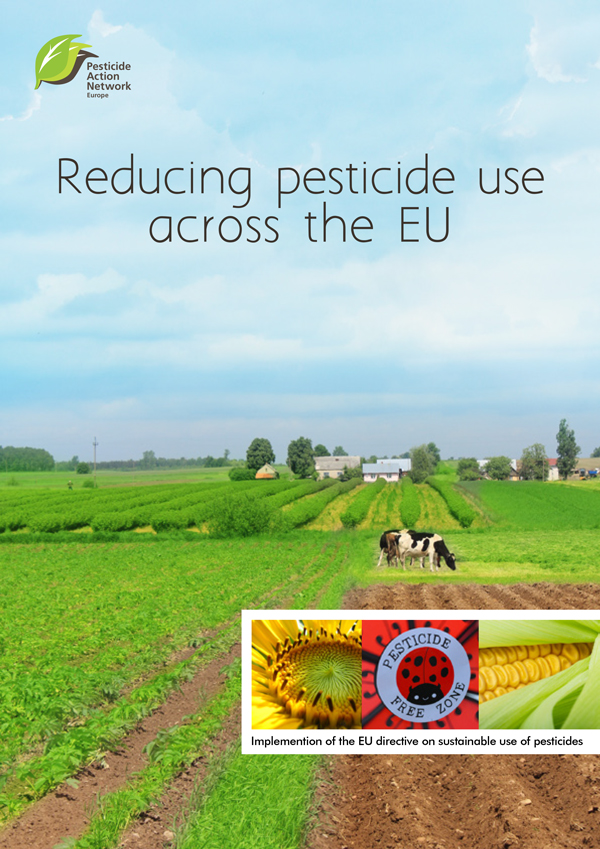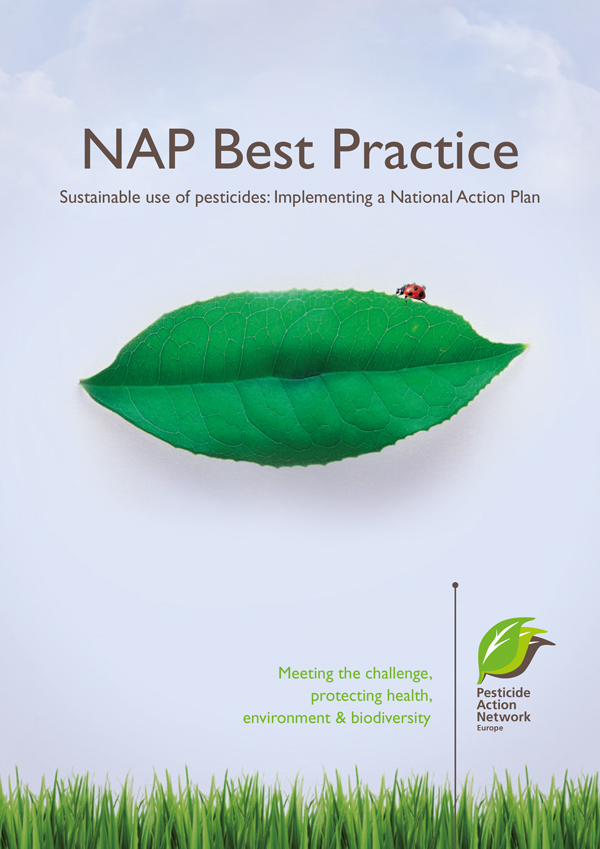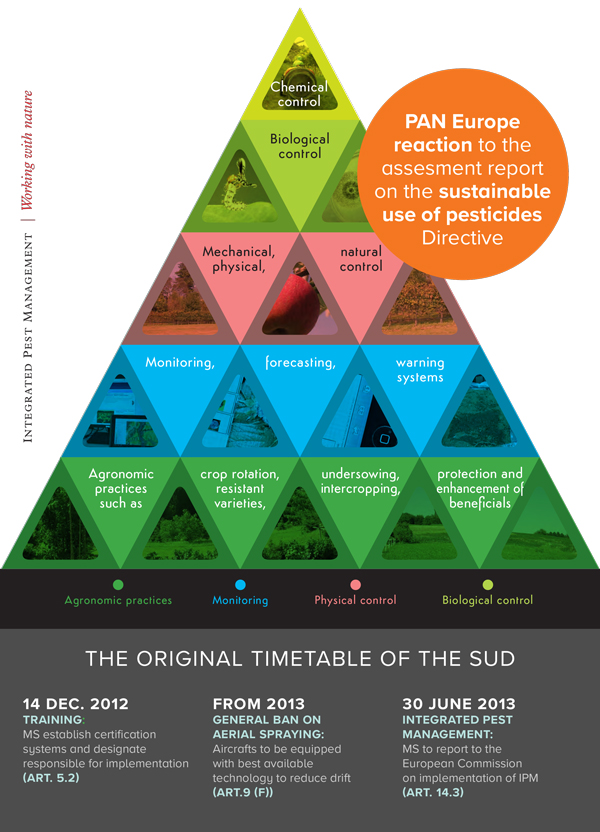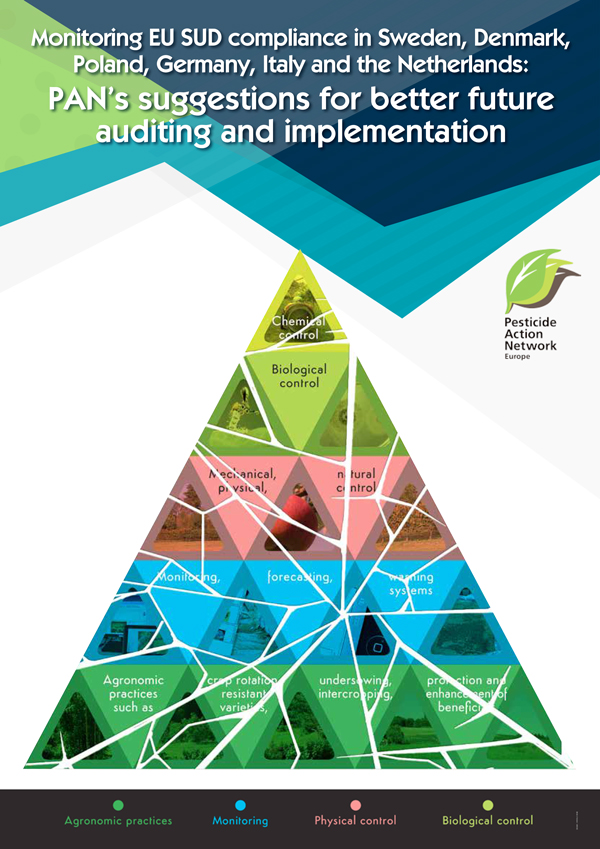The EU Commission proposed a new regulation to reduce pesticides in July 2022 as part of the Green Deal. It received massive opposition from the pesticide industry and the industrial farming lobby. Their intensive campaign in many EU countries succeeded to derail the proposal. The proposal was weakened and in the end did not get support of a majority in the EU Parliament. In February 2024, the Commission withdrew its proposal. Especially conservative politicians exposed themselves as spokesperson for this lobby. They claimed it is too much and too early. However, the regulation was nothing new. It is just a more binding form of the regulation on the sustainable use of pesticides directive (SUD) that has been in place since 2009. Postponing the necessary steps will not help farmers and only make the problem worse. A strong reduction of pesticides is urgent for our health and that of our children and the generations to come, for healthy soil, clean water and biodiversity to be able to produce food in the future.
Officially the proposal was called Regulation on the Sustainable Use of Plant Protection Products. It includesd EU wide targets to reduce the use and risk of chemical pesticides by 50% in 2030. This is line with the EU’s Farm to Fork and Biodiversity strategies. It was supported by thousands of scientists and over 1 million EU citizens who voted for an even stronger pesticide reduction in the Save Bees and Farmers ECI.
The proposal for the Sustainable Use Regulation can be found here on the website of the EU.
The most important measures of the SUD more formally known as the Directive 2009/128/EC of 21 October 2009, beyond setting quantitative use reductions, are:
- Implementing IPM, for all EU farmers to apply from 2014, so ”professional users of pesticides switch to practices and products with the lowest risk to human health and the environment among those available for the same pest problem.” (Article 14.1). The importance is to give priority to preventative elements.
- Giving priority to non-chemical alternatives, "Member states shall take all necessary measures to promote low pesticide-input pest management, giving wherever possible priority to non-chemical methods” (Article 14).
- Ensure that pesticide use is minimised or prohibited in specific areas (Article 12).
- Establishing appropriately-sized buffer zones to protect non-target aquatic organisms and safeguard zones for surface and groundwater used for the abstraction of drinking water, where pesticides must not be used or stored (Article 11).
In 2010, PAN Europe prepared a report on National Action Plans (NAPs) Best Practices to assist and support EU member states in producing their plans. Read our report on "Sustainable use of pesticides: Implementing a National Action Plan".
Member States prepared National Action Plans (NAPs) for the first time back in 2011.
 However, PAN Europe has evaluated these plans and finds, as can be seen in this report, that the level of ambition is really low.
However, PAN Europe has evaluated these plans and finds, as can be seen in this report, that the level of ambition is really low.
The European Commission echoed this criticism in its recent report on progress in the implementation of the Directive on the Sustainable Use of pesticides (SUDP) by Member States.
The wording used by the European Commission is very soft. Therefore, PAN Europe prepared a response highlighting the next steps to take in our point of view:
The European Commission is undertaking audits in the Member States to control compliance with the SUDP requirements.
PAN Europe believes these audits could be improved, and that it is time for the European Commission to take legal actions against Member States not complying with the EU Directive. This report explains part of what we are asking for.
One of the main reasons why the SUDP is not implemented correctly is, as highlighted in European Court of Auditors’ Special Report Integration of EU water policy objectives with the CAP: a partial success (2014), that the SUDP is not integrated into the European Union’s Common Agricultural Policy (CAP).
For the SUD revision in 2020 PAN Europe called for the following updates:
-
Introduction of EU-wide pesticide reduction targets: 50% use targets by 2025 (article 4), 80% by 2030 and 100% by 2035;
-
Sensitive areas to become pesticide-free (article 12);
-
Full integration of IPM into the CAP (article 14) and development of strong use indicators to measure compliance.
The European Commission's report on SUD implementation from 2020 accompanying the Farm to Fork publication, among others, concludes:
- More than two-thirds of Member States failed to complete the review of their initial NAP within the five-year legal deadline.
- Only a small minority of Member States identified specific examples of useful targets and indicators based on the review of their initial NAP.
- Most Member States have not addressed the weaknesses identified by the Commission in their initial NAPs in their revised NAPs so that the majority of revised NAPs lack ambition and fail to define high-level, outcome-based targets, so as to reduce the risks associated with, and dependency on, PPPs.
Member States, steered by the German Presidency, decided to react to this and are currently preparing a report. PAN obtained the document, realised its sad wording, and proposed all Member States an updated wording in which Member States engage in the ecological transition recognising the many alternatives to pesticides we already can use now (link to letter). An access to document request though shows that none of the proposed improvements have been taken into account by the German presidency. The next working group will take place on 27 November 2020.
For more details on how to integrate the SUD and the CAP, see our CAP webpage and the CAP section of our Low Impact Farming Campaign.
For details on letters sent to Member States and the European Commission, see our updates.
Past Activities:
PAN Europe
PAN Europe Workshops
- National Action Plans, Integrated Pest Management and the Common Agricultural Policy (21-22 January 2009)
- Sick of Pesticides Workshop (30 November 2010)
- Best practice National Action Plans (NAP) – and then what? (28 October 2010)
Report on pesticide use in France
- Aerial spraying in France-Forests And Pesticides, by Generation Future (French PAN Europe member) in English
- Aerial spraying in France-Forests And Pesticides, by Generation Future (French PAN Europe member) in French
Survey on pesticides use
- Pesticides - a toxic education? A survey of pesticides in UK schools, by HEAL (January 2010)
Pesticide Use Reduction Strategies


